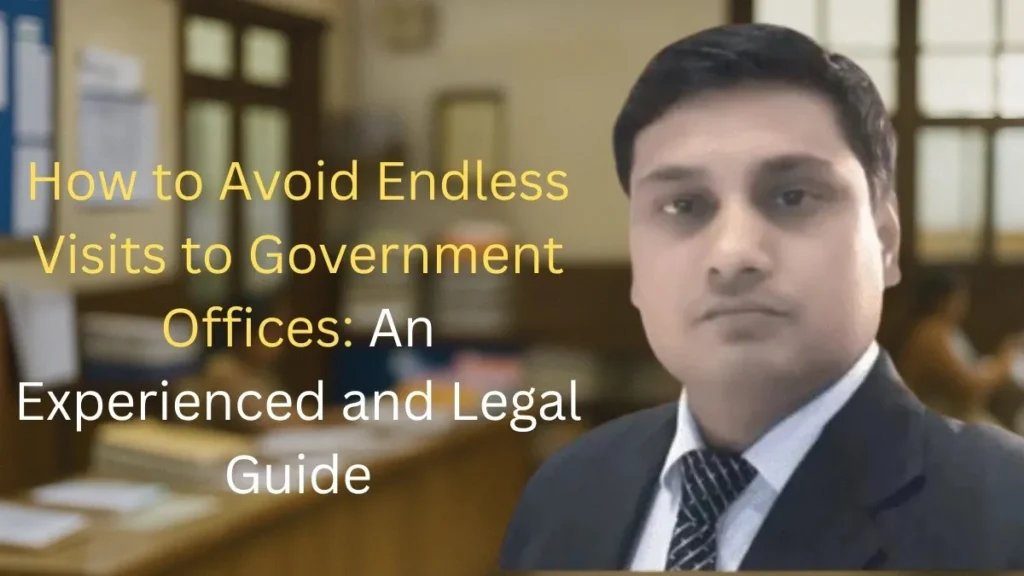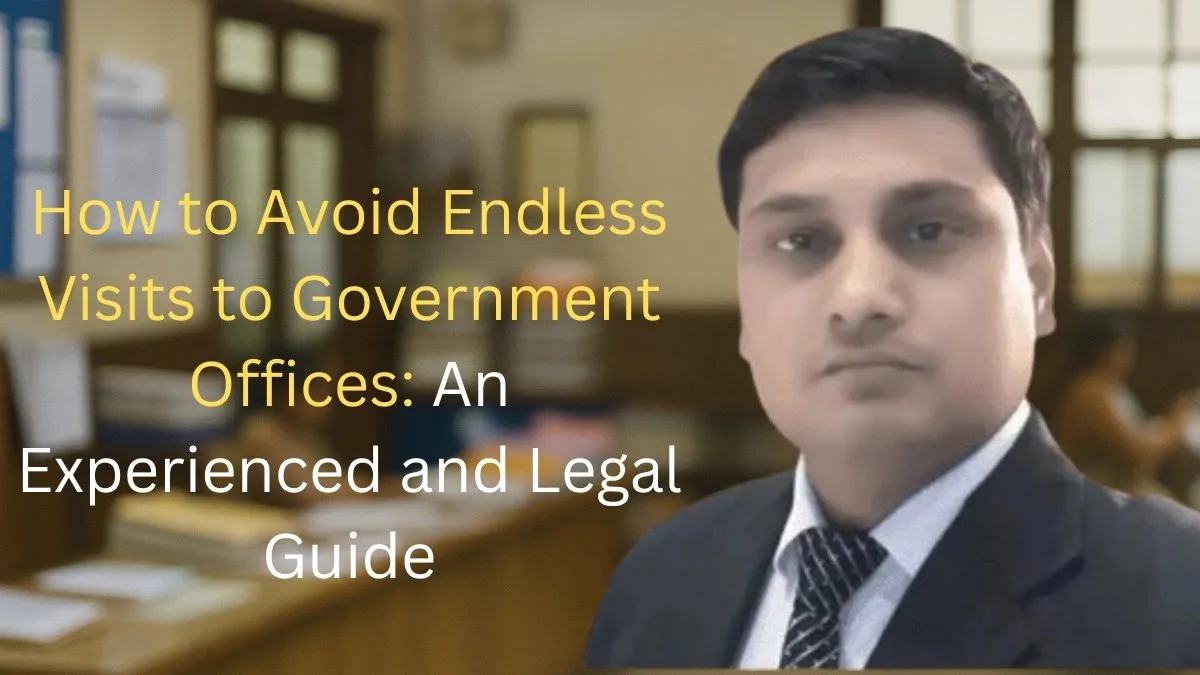In a democratic country like India, every citizen has the right to fair and timely resolution of their work. But due to corruption and complex systems, the common man often finds himself running in circles at government offices. For the past 22 years, I’ve been fighting this system with honesty, legal awareness, and perseverance. Through this article, I’m sharing my experience so that people in need can get their work done by knowing their rights and legal options.
1️⃣ Identifying the Problem: Where and Why Does Your Work Get Stuck?
Delays and red tape in government offices are unfortunately routine. The main reasons are:
- Bureaucratic arbitrariness
- Corruption
- Lack of public awareness about legal rights
- Fear and hesitation
Unless we understand the root cause, finding a solution is impossible.

2️⃣ First Step: Submit a Written Application to the Relevant Office
If your work isn’t progressing:
- Submit a written application on plain paper or the prescribed format to the concerned official.
- Take a receiving acknowledgment or receipt number and keep a copy with you.
Legal Importance: A written application serves as proof that you’ve officially informed the department about your issue.
3️⃣ Second Step: Complaint to Senior Officials
If your issue isn’t resolved at the lower level:
- Send a formal complaint to the senior officer of the same department via post, email, or online grievance portal.
- Attach all previous application details and copies.
Legal Importance: Under the Constitution, every citizen has the right to get their grievance heard.
4️⃣ Third Step: Approach the Departmental Grievance Cell
Every ministry and department has a Grievance Cell. You can:
- Lodge an online complaint at https://pgportal.gov.in or on the concerned department’s official portal.
- The Department of Administrative Reforms & Public Grievances (DARPG) portal is also highly effective.
Legal Importance: This system is created to offer time-bound resolutions to public grievances.
5️⃣ Fourth Step: Use the Right to Information Act (RTI Act 2005)
If your complaints are still ignored:
- File an RTI application under the RTI Act 2005.
- You can demand a reply within 30 days regarding the status of your file, decision process, and reasons for delay.
Legal Importance: The Right to Information is a constitutional right under Article 19(1)(a).
6️⃣ Fifth Step: Appeal and Complaint to the Central Information Commission
If the RTI response is misleading or not received:
- File a First Appeal before the First Appellate Authority (FAA) of the same department.
- If unsatisfied, lodge a second appeal or complaint to the Central Information Commission (CIC).
Real Experience: I’ve personally taken several cases to the CIC. Sadly, many times even bureaucracy ignores CIC’s directions, but in several cases, positive resolutions have come through.
7️⃣ My 22-Year Experience and Learning
In every case, I’ve followed this simple but effective legal process:
- Written application at the concerned office
- Complaint to the senior officer
- Lodge grievance at the Grievance Cell
- Use of the RTI Act 2005
- Appeal or complaint to the CIC
Even today, about 40% of my cases are still pending because of corrupt officers and politicians in the system. But I never gave up. I believe this fight is essential so that future generations can experience a better governance system.
8️⃣ Why Is Corruption So Rampant and How to Fight It?
Primary Reasons:
- Weak accountability systems
- Nexus between politics and bureaucracy
- Public fear and lack of awareness
Solutions:
- Keep written proof of every official communication
- Use RTI powerfully
- Take support from social media, Lokayukta, Human Rights Commission, Chief Minister’s helpline, etc.
9️⃣ How Can Your Day-to-Day Issues Be Resolved?
If a lower-level officer is not helping:
- Give a written complaint
- Approach senior officers
- Lodge a complaint in the grievance cell
- File an RTI
- Appeal to the CIC
Most minor issues get resolved in the first three steps. Public interest matters, however, take longer — like my ongoing battle.
🔟 Conclusion
For meaningful change in India’s government system, aware and proactive citizens must come forward. I’m still fighting for my pending 40% cases. This struggle is difficult, but I firmly believe that future generations will benefit from these efforts.
Know your rights, don’t be afraid, and get your work done through legal means.
👉 If you wish to learn the full process of filing an RTI under the RTI Act 2005, don’t miss my special article dedicated to that topic.

Narendra Singh is the founder of this website. He has considerable experience in the hotel industry. Through his articles, he expresses his views to make people aware of the evils going on in the society and to avoid them. To fulfill this objective, he has switched his 18 years long career of the hotel industry and entered in his favorite and interesting career, media. He not only warns against social evils, Rather, by using the Right to Information Act 2005, they expose social evils and inform the concerned department for action against the culprits.

